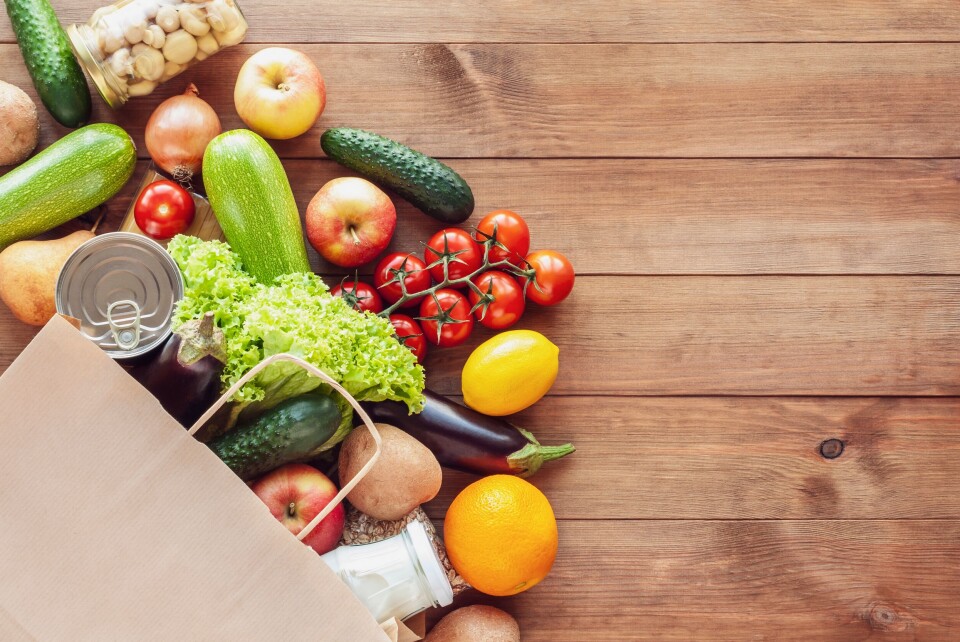-
Brigitte Bardot, global film star and tireless campaigner for animal rights, dies at the age of 91
She rose to international prominence in the 1950s and 1960s before leaving cinema at 39
-
Cars and driving: What's new in France in 2026
Including the new pollution tax on used cars, motorway toll changes and speed camera changes
-
More than a quarter of new car registrations in France are electric
EV sales hit new record in November 2025
France pledges €60million in 'sustainable' national food aid in 2023
The prime minister said the funding would go towards national projects as well as local initiatives decided by prefects

France is to spend €60million on ‘sustainable’ food aid projects in 2023, Prime Minister Elisabeth Borne has said, including ‘national networks’ and local initiatives. It could also help to develop a food cheque scheme.
The plans will enable the “most vulnerable” people in France to access “good quality food” via a “long-term food aid fund” from next year, the PM said during a visit to a food bank in Reims, Marne.
By ‘sustainable’ (in French durable) Ms Borne was referring to fresh, high-quality food, especially when produced in people’s local areas and not involving a lot of environmentally-unfriendly transport costs.
Le combat contre la précarité alimentaire est un combat collectif.
— Élisabeth BORNE (@Elisabeth_Borne) November 3, 2022
Alors que la collecte annuelle des @BanquesAlim débutera à la fin du mois, j’étais ce matin à Reims auprès de celles et ceux qui s'engagent et font vivre chaque jour ce réseau d'aide alimentaire.
Merci à eux ! pic.twitter.com/ZB5G6V6yqn
She was accompanied on her visit by Solidarity Minister Jean-Christophe Combe and the Social Economy Junior Minister Marlène Schiappa.
Ms Borne said: “[We want] to support the main national projects, so that they can buy more quality and fresh products. We also want to support initiatives like those we have seen this morning in local areas, for example, to buy quality foods for our food banks and associations that work in food aid.”
The money will go to national and local projects that already exist, but the government will also call for proposals for more projects, which will also benefit from the funds.
Local projects will be funded via “regional prefects”, said Ms Borne. They could include “support for initiatives between farmers and producers, who could work on local supply chains to deliver quality food.
“For example, we could also put long-term food cheques in place, because that’s something that we want to develop on a national level.
“We are working on a food cheque [scheme], which is a very complicated subject. We wanted to start with this food aid project, by improving the quality of products being offered.”
Aux côtés de @JCCOMBE et @MarleneSchiappa, je lance aujourd'hui un fonds d’aide alimentaire durable doté de 60 millions d'euros pour que les associations puissent proposer davantage de produits de qualité issus des circuits courts et pour soutenir les initiatives locales. pic.twitter.com/QJm5L2EYtk
— Élisabeth BORNE (@Elisabeth_Borne) November 3, 2022
Food cheque changes
Food cheques (chèques alimentaires) were among the promises made by President Macron in his campaign for a second presidential term.
Read more: End of TV licence fee, food cheques: Macron’s promises if re-elected
Read more: Spending power in France: general inflation aid to replace food cheque
However, complications in setting up the food cheque system led the government to introduce general bank transfers for the lowest-income households instead of dedicated food aid.
The food cheque had been intended to help lower-income households to buy healthy, local, sustainable, and organic items, against the backdrop of rising inflation and soaring food prices.
Related articles
Inflation in France slowing but fresh food prices still up 11% in year
New food cheque should only cover healthy products, say French MPs
Recap: France's nine measures to boost residents' spending power
























